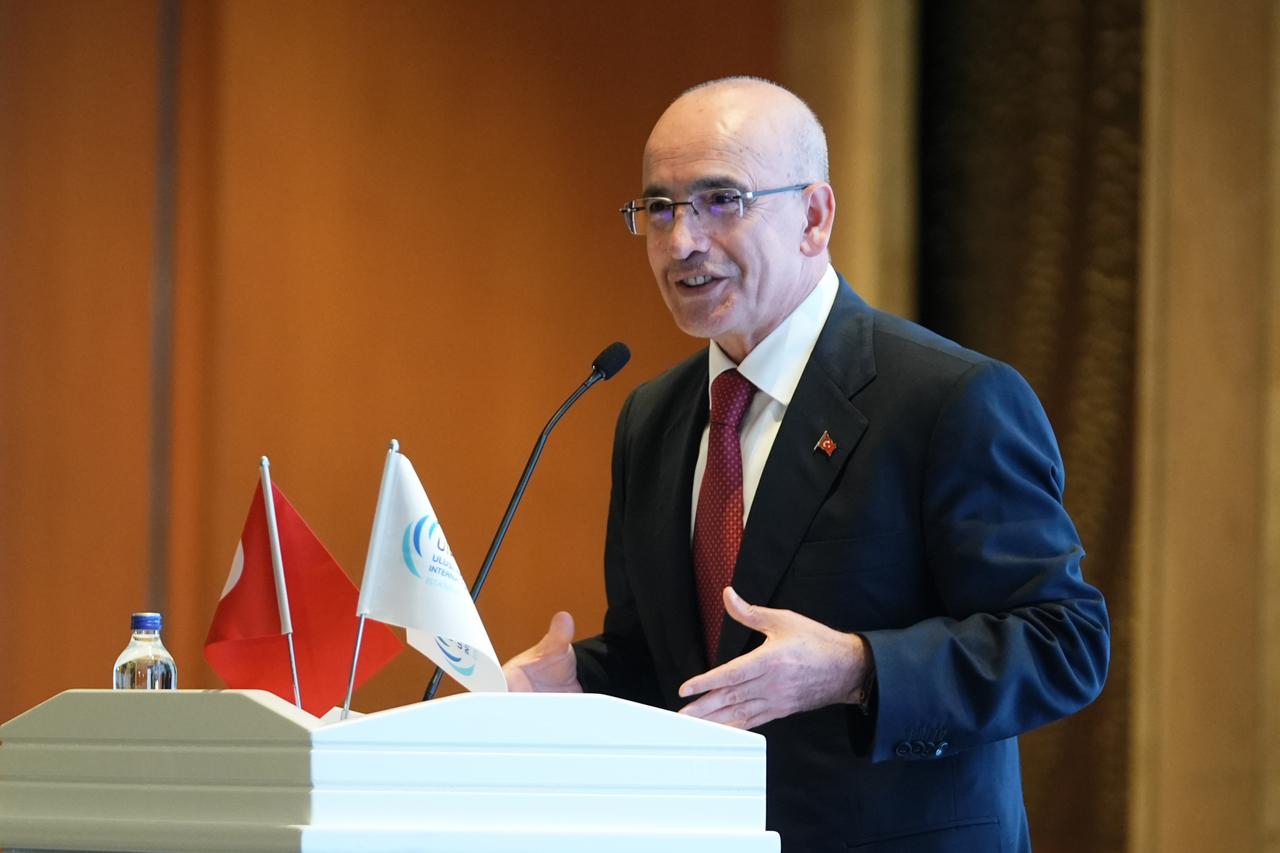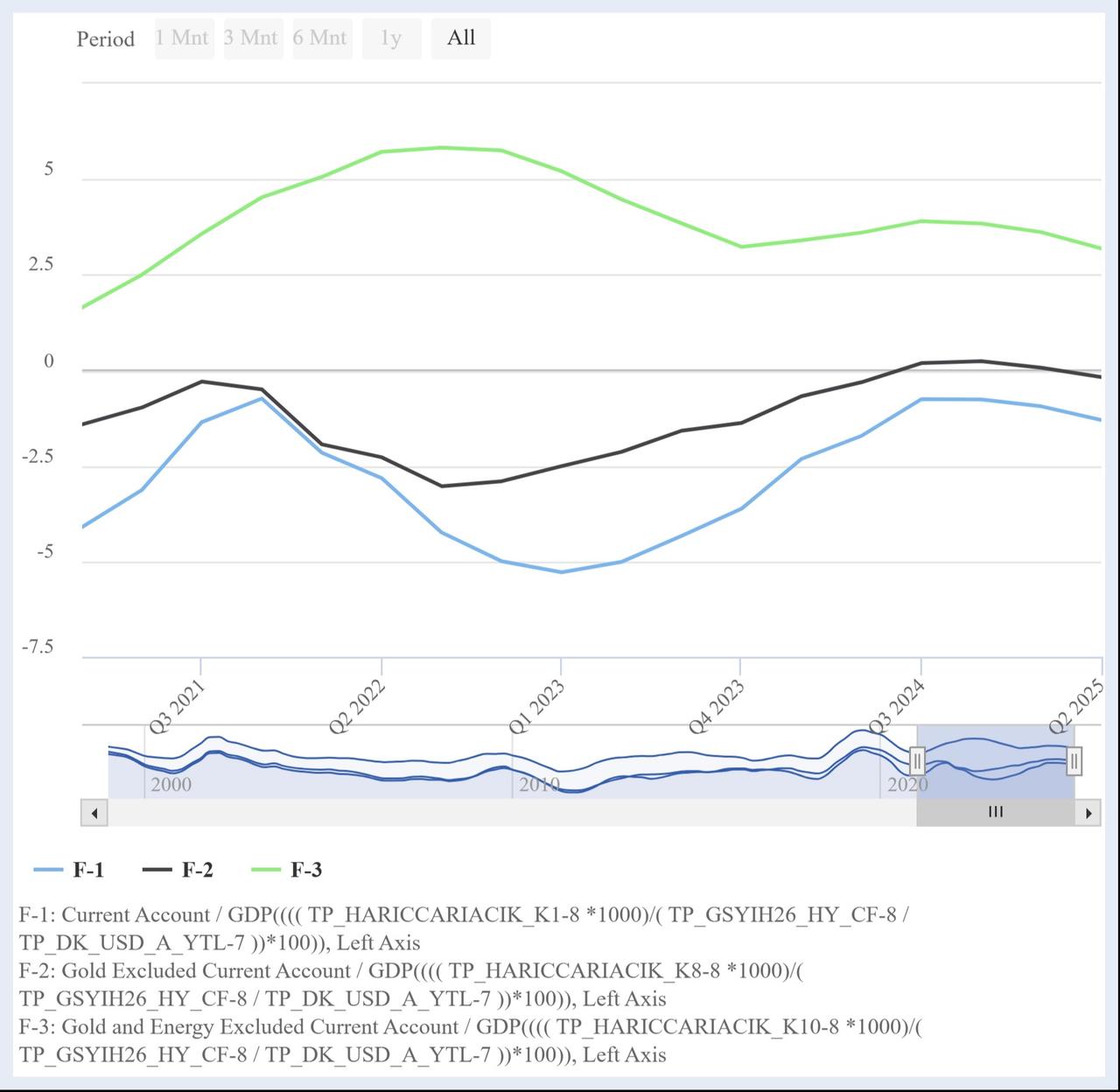
Türkiye’s Finance and Treasury Minister Mehmet Simsek said that concerns surrounding the Turkish lira are "no longer based on fundamentals," pointing to a sharp decline in the country’s current account deficit, improved access to international capital markets, and strengthened financial indicators.
Speaking at the 16th Bosphorus Summit in Istanbul, Simsek said Türkiye’s external borrowing requirements have fallen rapidly while its current account deficit has narrowed considerably. He underlined that excluding gold, the country’s deficit has declined "substantially" over the past three years, reducing pressure on the currency.
"This means concerns over the lira are unfounded," Simsek said, emphasizing that Türkiye’s access to global capital markets has improved and that the lira’s long-term outlook is supported by stronger fundamentals.
Türkiye posted a record current account surplus of $5.5 billion in August, narrowing its annual deficit to $18.3 billion. The current account gap to gross domestic product (GDP) ratio also fell to 1.3% in the second quarter of 2025, marking a sharp improvement from 5.29% in the first quarter of 2023.
The minister added that Türkiye’s credit risk premium, measured by five-year credit default swaps (CDS), has dropped by around 460 basis points since the start of the government’s economic program in September 2023, allowing both Turkish companies and the Treasury to borrow internationally at lower costs.
Simsek reiterated that the government’s economic plan is built on three pillars: price stability, fiscal discipline, and a sustainable current account balance. He said the program is now in its second phase, focusing on reducing macroeconomic imbalances and bringing inflation down.
Inflation, which had hovered near 65%, has declined to about 32% as of October, and the government expects the disinflation process to continue over the next three years, eventually returning to single digits, Simsek added.
According to Simsek, this progress stems from tight monetary policy, controlled public spending, supportive income policies, and restricted administrative price adjustments. He noted that Türkiye’s "output gap"—the difference between potential and actual economic growth—remains slightly negative, helping to moderate price pressures.
The minister said Türkiye maintains one of the lowest debt ratios among emerging economies, with total indebtedness at around 89% of GDP compared to 242% in developing economies and 320% globally. "If you have fiscal space, you can tackle global challenges more effectively," he said.
Simsek also highlighted progress in budget management, citing tighter control over expenditures, improved revenue collection through measures targeting the shadow economy, and ongoing public finance reforms designed to strengthen fiscal rules. Although the budget deficit has remained around 5% since the start of the program, the Medium-Term Program for 2026–2028, unveiled in September, projects the deficit-to-GDP ratio to decline to 3.1% by the end of 2025.

Looking ahead, Simsek said 2026 will mark a new stage focused on structural transformation, following a period of stabilization and disinflation. The government plans to accelerate productivity-enhancing infrastructure projects that connect industrial zones to ports via railways, reducing both costs and carbon emissions.
He also underlined Türkiye’s goal of deepening regional economic integration through free trade agreements (FTAs) and transport corridors, including the "Development Road Project," which links Iraq’s Faw Port to Europe via Türkiye. Ankara currently has FTAs with 54 countries, covering more than 80% of its exports.
Simsek said Türkiye is conducting around 1,400 active projects in the defense sector, with annual exports exceeding $8 billion and new orders topping $12 billion as of October. The sector’s rapid growth, he said, reflects Türkiye’s ability to develop domestic capabilities after years of embargoes.
He added that the government continues to prioritize green transformation, renewable energy, and local oil and gas production, which together will help reduce import dependency and improve the current account balance.
Despite persistent global uncertainty, Simsek expressed confidence in Türkiye’s ability to adapt and grow.
"There are major global challenges, but we know how to turn them into opportunities," he said. "We have strong potential in regional trade, service exports, and green transformation. What matters is positioning ourselves strategically in this changing global system."